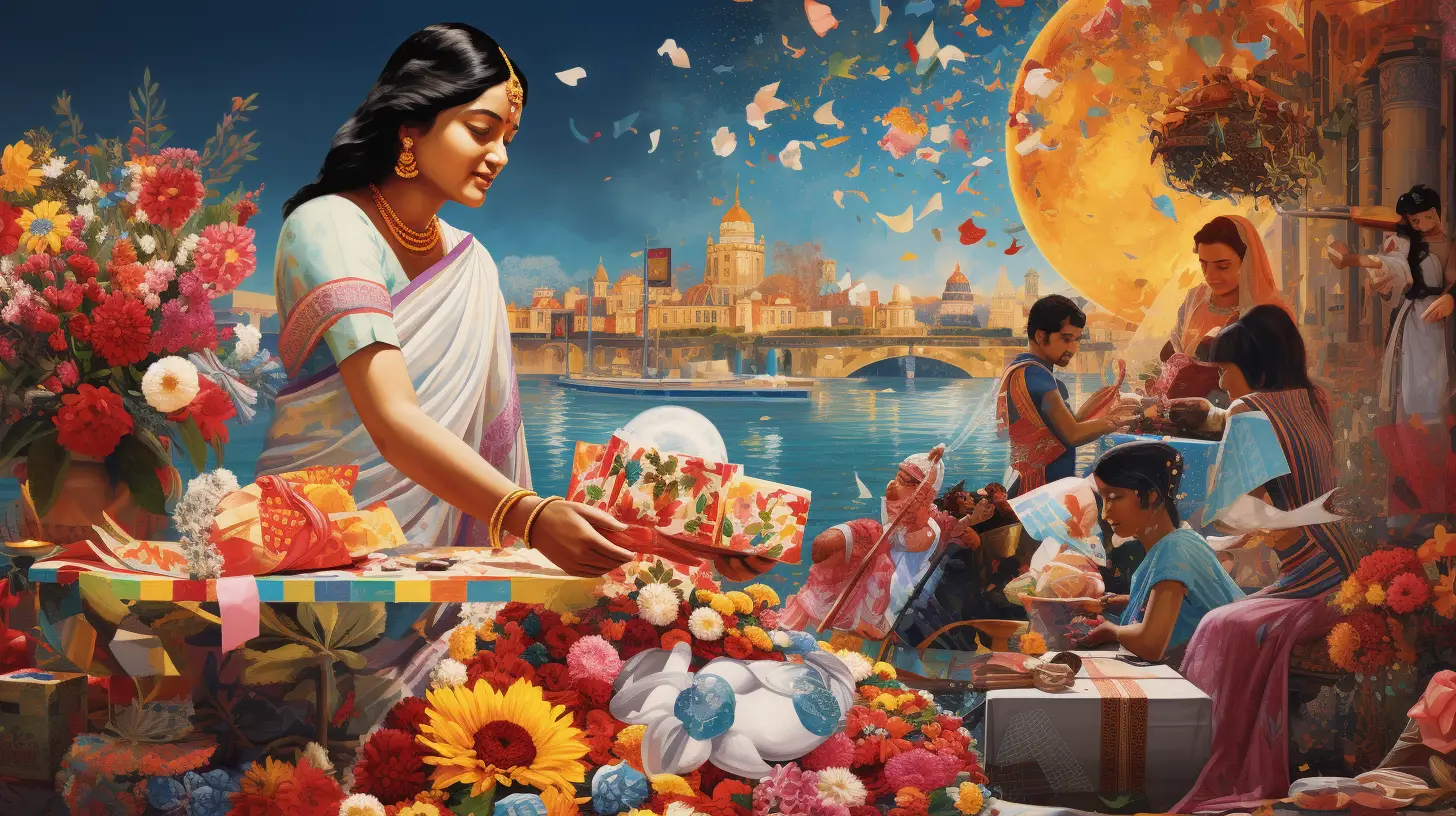Unwrapping Cultural Traditions: Global Gift-Giving Customs
Gift-giving is a universal practice, but each culture brings its own unique touch, rooted in ancient traditions, beliefs, and rituals. While the heart of giving remains the same, the ceremonies, items, and etiquettes can differ widely. Here's a deeper exploration into various cultural nuances around gifts.

1. Japan: The Art of Presentation and Reciprocity 🎏
In Japan, the meticulous approach to gift-giving emphasizes both the item and its presentation, a reflection of the deep thought and care behind every gesture.
- Omiyage: These regional specialties, presented after travels, go beyond mere souvenirs, exemplifying the essence of sharing one's journey.
- Giri-Choco: Women gift 'obligation chocolates' to male colleagues on Valentine's Day, expecting a more lavish reciprocation on White Day.
- Wrapping Precision: Using furoshiki cloth or ornate paper, the art of wrapping symbolizes profound respect for the recipient.
2. Russia: Flowers, Sweets, and Odd Numbers 🌸
Russia's gift-giving customs echo its history, emphasizing symbolism and superstition.
- Even Numbers: Always avoid even-numbered bouquets - they're reserved for mourning. Instead, celebrate life's moments with odd-numbered blooms.
- Sweet Tooth: Confectioneries, like chocolates and candies, are cherished gifts, reflecting shared moments of life's sweetness.
- Punctuality: Always be on time, as tardiness may be seen as disrespectful. A modest gift further appreciates the host's hospitality.
3. India: Colors, Festivities, and Symbolism 🎨
India's vast landscapes bring forth a medley of gift-giving customs, mirroring its multitude of festivals, religions, and personal celebrations.
- Festive Occasions: Diwali sees families exchanging gifts, from sweets to gold, celebrating bonds of prosperity and joy.
- Weddings: Envelopes of cash, luxurious garments, and intricate jewelry become tokens of blessings for the newlyweds.
- Religious Symbolism: Offering idols or scriptures during ceremonies symbolizes auspicious beginnings and goodwill.
4. Brazil: Warmth, Color, and Celebratory Spirits 🎉
In Brazil, gift-giving translates to warmth, friendship, and vibrant celebrations.
- Lively Colors: Gifts, bursting with color, are preferred, while purple and black are avoided due to mourning associations.
- Handcrafted Presents: Handmade crafts, desserts, or music signify deep affection and personal effort.
- Festive Spirits: Events see an influx of perfumes, wines, and chocolates, encapsulating the merry Brazilian temperament.
5. Kenya: Beads, Animals, and Community Bonds 🦓
Kenyan gift-giving resonates with its tribal roots, emphasizing community and shared prosperity.
- Beaded Jewelry: Handcrafted beaded items, symbolizing one's tribe and status, are cherished gifts between families.
- Livestock Gifts: Offering animals, like goats, reinforces community bonds, ensuring shared prosperity.
- Traditional Attire: Gifting traditional clothing, like kanga, signifies respect and honors the recipient's heritage.
6. Italy: Wine, Food, and Family Gatherings 🍷
Italy, with its rich history and love for gastronomy, turns gift-giving into a heartwarming culinary experience.
- Vino: Gifting a bottle of wine is customary, appreciating Italy's profound wine culture.
- Sweet Delights: Panettone during Christmas or chocolates in elegant boxes are popular choices, emphasizing shared culinary joys.
- Home Gatherings: When invited home, flowers or chocolates express gratitude, strengthening family bonds.
7. China: Colors, Etiquettes, and Lunar Celebrations 🐉
Chinese customs highlight respect, luck, and prosperity, deeply rooted in ancient beliefs.
- Red Envelopes: During Lunar New Year, red envelopes (hongbao) filled with money are given, symbolizing good luck and warding off evil spirits.
- Gift Etiquettes: Always present and receive gifts with both hands, embodying respect. Refusing a gift once before accepting is seen as polite modesty.
- Tea and Spirits: Premium teas or liquors, wrapped in ornate packaging, are gifts that underline respect, health, and prosperity.
Conclusion: The Universal Language of Gifts
Across continents and cultures, the essence of gift-giving remains consistent - a genuine expression of love, respect, and appreciation. From Japan's intricate wrapping art to Kenya's communal livestock offerings, these traditions celebrate shared human emotions. As the world grows closer, understanding these customs deepens our bonds, fostering genuine global connections. Here's to a world united, one thoughtful gift at a time.
